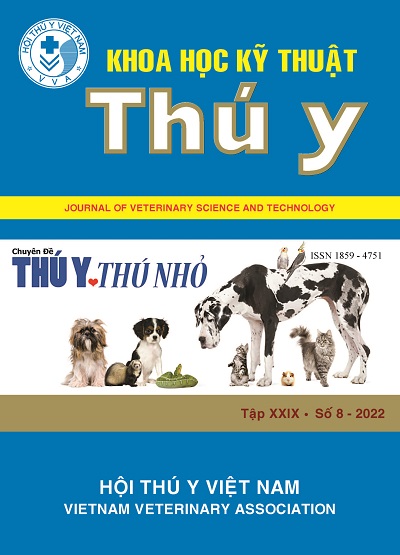Investigation on prevalence and application of soft palate resection surgery for the treatment of brachycephalic obstructive airway syndrome (BOAS) in brachycephalic dog breeds
Abstract
This study was conducted on 60 brachycephalic dogs to determine the infection rate at different levels in the respiratory tract (brachycephalic obstructive airway syndrome – BOAS), narrow nose level and the disease distribution by age groups, breeds and genders. The studied result showed that the rate of dogs suffering with BOAS was 0.48%. The number of infection dogs concentrated in the dog group above 1 year old (67.85%), male dogs (56.41%), French Bulldog (70%). For treatment of this
disease, soft palate resection surgery method was applied on 10 dogs, of which 2 were brachycephalic dogs and 8 were non-brachycephalic dogs. Two brachycephalic dogs were suffered with BOAS at grades II - III and narrow nose at grade II. The result of surgery showed that cutting site bleeding was
the only intra-operative complication that we could observe during the surgery and this happened in 1 brachycephalic case (10%). This complication was not affecting to the recovery process of the patient.
Pain was not noticed post-surgery. Respiratory function was improved for at least one grade after surgery. The common complications in post-surgery included regurgitation (10%), vomiting (10%), and death (10%). The average time for one surgery was 37 minutes for brachycephalic dogs and 22
minutes for non-brachycephalic dogs. The healing time for stenotic nares surgery was 7 – 10 days

